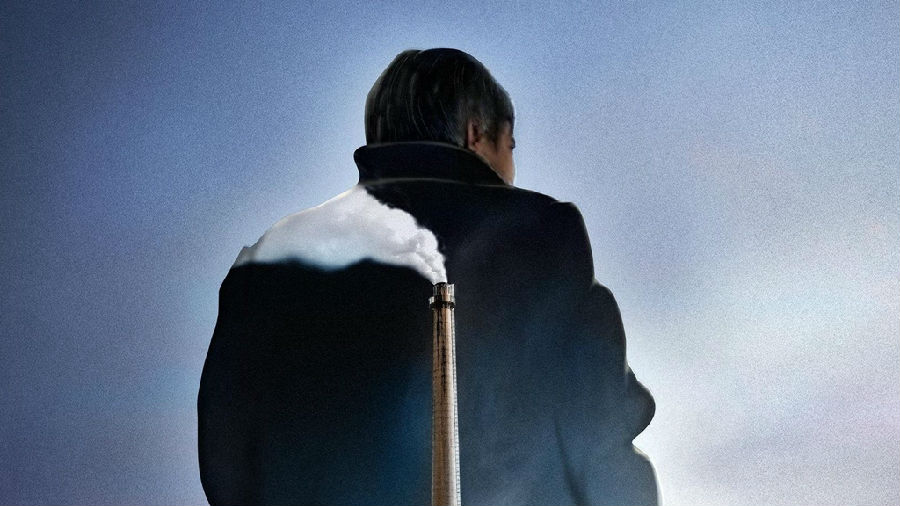A film about the near-death experience of a state-owned enterprise in China is being screened in the latest attempt by regulators to build public support for a new round of painful restructuring.
一部讲述一家中国国有企业“浴火重生”的电影正在上映,这是监管机构为新一轮艰难国企改革争取公众支持的最新尝试。
Despite the popularity of films about the undead in China this production about a corporate ‘zombie’ is no blockbuster. Instead, a retired civil servant is promoting A Harsh Transition, a sober documentary that makes the case that bankruptcy may not be so bad after all.
尽管僵尸题材电影在中国很受欢迎,但这部关于“僵尸企业”的电影绝对称不上大片。一位退休公务员正在为这部名为《绝境求生》(A Harsh Transition)的严肃纪录片进行宣传,该片要告诉人们的是,破产可能并不那么糟。
“After bankruptcy a company can live again, like a phoenix,” Zhou Fangsheng, the documentary maker, declared to journalists after a screening this week in Beijing. “Look at Donald Trump. He’s said himself he’s declared bankruptcy four times and look at him now. Isn’t he doing well? He’s the US president!”
“一家企业破产后可以像凤凰一样涅槃重生,”纪录片制作人周放生本周在北京一次放映后对记者们宣称,“看看唐纳德?特朗普(Donald Trump)。他说自己已经四次宣布破产,再看看现在的他。他现在不是很好吗?他当上了美国总统!”
It is a case that the State-owned Assets Supervision and Administration Commission, Mr Zhou’s former employer, is struggling to make. China’s economy is encumbered by thousands of indebted so-called zombie companies that are kept on life support by local governments fearful of job losses and bad debt.
破产没那么糟,这一点正是周放生此前供职的中国国务院国有资产监督管理委员会(SASAC,简称:国资委)正极力要向人们表明的。中国经济受到了成千上万负债累累所谓“僵尸企业”的拖累,这些企业靠着担心失业和坏账的地方政府苟延残喘。
In spite of brave talk of state-owned enterprise reform, state-engineered rescues are still the norm. Rising debt levels have evoked comparisons to the late 1990s, when China restructured the state-owned sector and recapitalised its banks. Tens of millions of people were thrown out of work when the “iron rice bowl” of job security was shattered.
虽然国企改革的口号喊得很响,但政府牵头进行救助仍是常态。不断攀升的债务水平让人联想起上世纪90年代末的情形,当时中国重组了国有部门,并对银行进行资本重组。数千万人被迫下岗,所谓的“铁饭碗”被打破。
Enter Mr Zhou and his film, which is being screened to about 10,000 people, mainly SOE workers, government officials, journalists and students. “A lot of people have lived through this experience, so they feel very moved,” Mr Zhou said.
周放生这部纪录片已有约上万人看过,主要是国企职工、政府官员、记者和学生。“很多人都有切身经历,所以他们感触非常深,”周放生说。
The film documents the travails of CNNC Hua Yuan Titanium Dioxide, a formerly secret nuclear plant in the desert of northern Gansu province. By 2009 the factory had switched to producing titanium dioxide but could not compete against dozens of private groups. Morale was low, plant equipment was scavenged and unpaid workers had rioted.
这部影片记录了中核华原钛白股份有限公司(CNNC Hua Yuan Titanium Dioxide,简称:中核钛白)破产重组过程中经历的种种阵痛,该企业的前身为一家位于中国西北甘肃省沙漠地区的秘密核工厂。到2009年,该厂转型生产钛白粉,但难以与数十家民营企业在市场上竞争。职工士气低落,工厂设备被盗卖,拿不到工资的工人不断闹事。
Sasac chose the company as a pilot for bankruptcy reform, after two failed attempts to get private businesses to buy in. On their third try, regulators persuaded Li Jianfeng, a private entrepreneur, to revive the business and recruited Mr Zhou to document the process, warts and all. In the end, it was a success, the film concludes, but it was not easy — the plant’s management mistrusted Mr Li, local officials tried to sabotage his efforts and he suffered a physical collapse during one particularly intense confrontation.
在两次尝试由民营企业收购中核钛白都失败后,国资委选择将该公司作为破产改革试点。在这第三次尝试中,监管机构说服了民营企业家李剑锋来重振中核钛白,并聘请周放生实事求是地记录这一过程。在影片结尾,破产改革最终取得了成功,但这一过程并不容易——工厂的管理层不信任李剑锋,当地官员处心积虑破坏他的努力,在一次特别激烈的对峙中,李剑锋病倒了。

Nonetheless, it could have been worse for Mr Li. Around the same period the representative of the private steel conglomerate that was attempting to restructure Tonghua Steel in northeastern China was beaten to death by a crowd of upset workers.
尽管如此,李剑锋遭遇的情况还不算最糟。差不多同一时期,在中国东北,试图重组通化钢铁(Tonghua Steel)的一家民营钢铁集团的代表被一群愤怒的工人围殴致死。
The reception to his film has been positive, Mr Zhou says. But it has also created an unexpected stumbling block to the cause of bankruptcy reform in some quarters: “Some private entrepreneurs see this and think, ‘Wow, it’s going to be that difficult?’ So they back out.”
周放生说,影片受到了肯定。但它也给某些领域的破产改革事业制造了意想不到的绊脚石:“一些民营企业家看了会想,‘哇,竟然会这么难?’然后就心生退意。”













